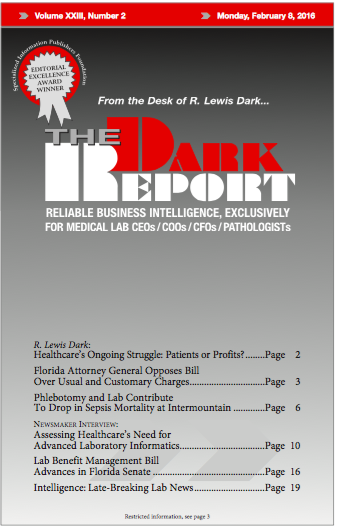CEO SUMMARY: To date, a bill to restrict how health insurers use lab benefit management systems such as UnitedHealthcare’s BeaconLBS, has been favorably received in the Florida Senate. But the bill may face opposition when presented to the Senate’s Appropriations Committee. In a report, the state Office of Insurance Regulation said that restricting the use …
Lab Benefit Management Bill Advances in FL Senate Read More »
To access this post, you must purchase The Dark Report.


